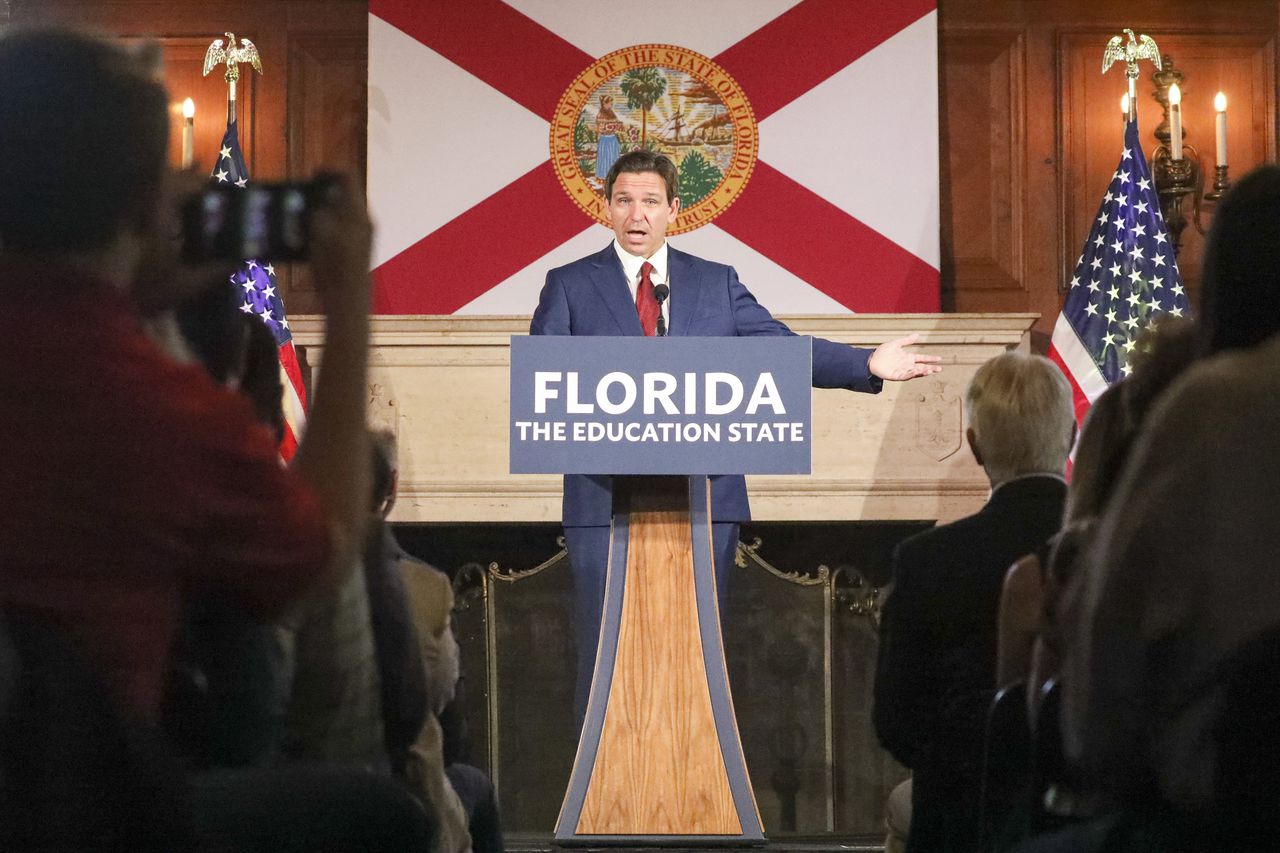Travel advisories spark concern for Latino Floridians amid civil rights backlash
A flurry of travel advisories issued by civil rights groups warning against traveling to Florida alarmed residents, one of whom believes Hispanic Floridians may especially face harm.
“I think it’s a very serious thing, when you try to restrict history and try to change reality,” said former veteran Eliseo Santana. The 64-year-old has been a resident of Pinellas County since the 1980s and is against many of the measures championed by Gov. Ron DeSantis and other lawmakers.
In recent months, DeSantis’ administration rejected an AP African American Studies course and banned colleges from spending money on most diversity, equity and inclusion programs.
He also signed a new immigration law in January that would require hospitals to get a patient’s immigration information and require employers to ensure workers are documented, among other things.
The League for United Latin American Citizens (LULAC), a Latino civil rights organization, urged people to avoid traveling to Florida due this new law that will take effect on July 1st. LULAC issued a travel advisory, only the second in its history, at a press conference on May 17.
Equality Florida, a LGBTQ rights advocacy group, issued a similar advisory, having previously warned about the ban on gender-affirming care for minors, removal of books with gay characters from school libraries and other.
The NAACP was the latest organization to issue a travel advisory, stating that Florida is openly hostile towards African Americans, people of color and LGBTQ+ individuals.
“Before traveling to Florida, please understand that the State of Florida devalues and marginalizes the contributions of and the challenges faced by African Americans and other minorities,” the advisory stated. It was approved by the NAACP’s board of directors on Saturday.
One of the “hostile” laws cited by LULAC – Senate Bill 1718 – invalidates out-of-state identification cards like driver’s licenses issued to undocumented immigrants and prevents state-agencies from issuing such cards to them.
People who transport undocumented immigrants living in the U.S face steep fines, penalties and possible imprisonment
Santana noted that laws like this have brought “so much fear” to Florida’s Hispanic community.
“[When] I help someone in need, I don’t go out there and ask them what their immigration status is,” he said.
Because many of Florida’s undocumented population are Hispanic or Latino, Santana – a U.S.-born citizen of Puerto Rican descent – thinks DeSantis’ new laws empower individuals to profile people like him.
“The brunt of the law is going to be absorbed by people like me,” he said. “By people that look Hispanic.”
With 10 of his grandchildren in public schools right now, he thinks laws like Stop WOKE Act have “devastating” impacts for the future generation he sees in his grandkids.
“When you remove the ability of being able to see us in history, it directly attacks the soul of our children [and] our community,” Santana said. “It stops them from being proud of who they are.”
The Stop WOKE Act restricts certain race-based conversations and analysis in schools and businesses and bans critical race theory from being included in education curriculums, restricting, if not eliminating, the representation of many groups.
The powerful part of representation, said Santana, is to build good self-esteem and for underrepresented communities to feel proud of who they are.
He can’t help but wonder what would happen if he disagreed about a particular book or biography being taught in school “that was extremely negative toward Hispanics” and insulted him.
“Would they take that book out? And also review it for banning?” Santana asked rhetorically. “Or is it just people that look like me that are subject to having the book removed?”
